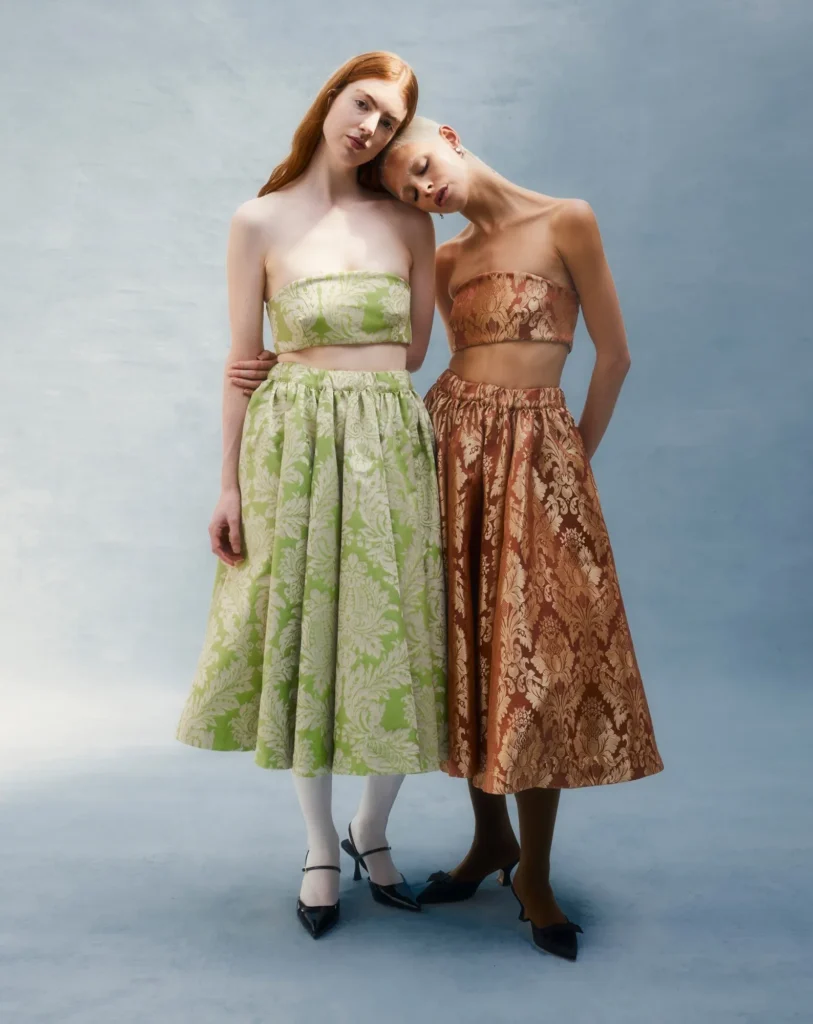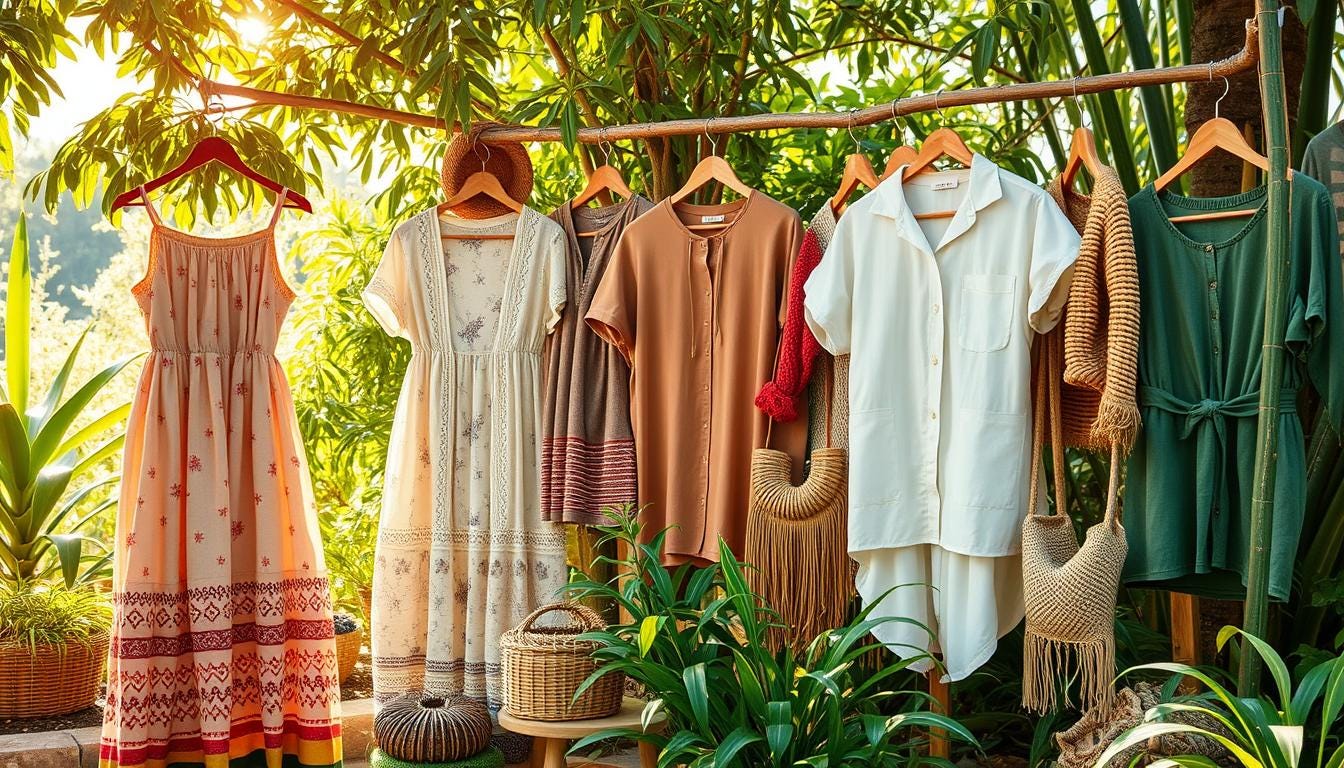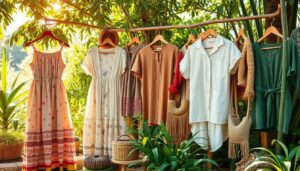The fashion industry has long been criticized for its environmental impact, from excessive waste to unsustainable production practices. However, in recent years, a wave of eco-conscious brands has emerged, striving to revolutionize the industry by prioritizing sustainability, ethical practices, and eco-friendly materials. These brands not only aim to reduce their environmental footprint but also set a new standard for what it means to be stylish while being kind to the planet.
Here are five eco-friendly brands that are leading the way in creating a more sustainable fashion industry:
1. Patagonia
Why They Stand Out:
Patagonia is one of the pioneers in sustainable fashion, with a deep commitment to environmental activism. The brand is known for using eco-friendly materials like organic cotton, wool, and recycled fabrics in their clothing and outdoor gear. Their dedication to sustainability goes beyond products, as they actively promote conservation efforts and work with environmental organizations to address climate change.
Key Sustainable Practices:
- Recycled Materials: Many of Patagonia’s products are made from recycled materials, including recycled polyester and nylon. Their well-known fleece jackets are made from 100% recycled polyester.
- Fair Labor Practices: They ensure fair wages and safe working conditions for all of their workers, and they are a leader in the Fair Trade Certified program.
- Worn Wear: Patagonia encourages customers to repair, reuse, and recycle their gear through the Worn Wear program. They buy used Patagonia items, repair them, and resell them, giving garments a second life.
- Environmental Activism: They donate 1% of sales to environmental causes and actively advocate for policies that address climate change and protect natural resources.
How They’re Changing the Fashion Industry:
Patagonia is not just a brand—it’s a movement. They’re challenging the status quo by showing that sustainability and high performance can go hand in hand. Their transparent supply chain, environmental advocacy, and commitment to reducing waste have set a benchmark for the industry.
2. Reformation
Why They Stand Out:
Reformation is a fashion brand that combines style with sustainability, making eco-friendly fashion both trendy and accessible. The brand focuses on producing stylish, on-trend clothing with minimal environmental impact. Reformation uses eco-friendly fabrics like organic cotton, Tencel, and recycled polyester, and they are transparent about their sustainability efforts.
Key Sustainable Practices:
- Sustainable Fabrics: Reformation uses environmentally friendly materials such as organic cotton, Tencel, and deadstock fabrics (unused fabric left over from other brands or manufacturers).
- Carbon Offset: The brand has committed to being carbon neutral by offsetting its carbon emissions through programs like tree planting.
- Made in the USA: By manufacturing most of their products locally, Reformation minimizes the environmental impact of shipping and supports ethical labor practices.
- Sustainable Packaging: Reformation ensures that all of their packaging is recyclable or compostable.
How They’re Changing the Fashion Industry:
Reformation has made sustainability a focal point of its brand while still appealing to fashion-forward customers. Their ability to blend eco-conscious practices with stylish designs has made them a favorite among fashionistas who want to look good without compromising on their values. By making sustainability mainstream, they’ve shown that eco-friendly fashion can be both chic and sustainable.
3. Allbirds
Why They Stand Out:
Allbirds is a footwear brand that is redefining sustainability in the fashion industry. Their focus is on creating comfortable, stylish shoes made from natural and renewable materials, like merino wool, eucalyptus tree fibers, and sugarcane. Allbirds’ shoes are known for their minimalist aesthetic, and their sustainable production methods have garnered significant attention in the fashion world.
Key Sustainable Practices:
- Natural Materials: Allbirds uses sustainable materials like merino wool, Tencel (from eucalyptus trees), and sugarcane-based EVA foam. These materials are biodegradable or recyclable, reducing the brand’s overall environmental impact.
- Carbon Neutral: Allbirds is a certified carbon-neutral company. They offset their emissions by investing in renewable energy and forest restoration projects.
- Transparent Supply Chain: Allbirds publishes a comprehensive carbon footprint for each of their products, allowing consumers to make informed decisions about the environmental impact of their purchases.
- Sustainable Packaging: Allbirds uses 90% recycled cardboard for packaging, further reducing their environmental footprint.
How They’re Changing the Fashion Industry:
By focusing on natural, renewable resources, Allbirds is setting a new standard for footwear. Their commitment to carbon neutrality and transparency is pushing the footwear industry to rethink its environmental practices. Allbirds proves that eco-friendly products can be stylish, comfortable, and, most importantly, have a minimal impact on the planet.
4. Stella McCartney
Why They Stand Out:
Stella McCartney is one of the most high-profile luxury brands advocating for sustainability in fashion. As an advocate for animal rights and environmental conservation, McCartney has consistently used her platform to promote ethical and sustainable practices in the fashion industry. Her designs are known for being both innovative and eco-conscious, making her a leader in sustainable luxury fashion.
Key Sustainable Practices:
- Vegan Materials: Stella McCartney has been a long-time champion of cruelty-free fashion, using only vegan materials in her collections. She avoids leather, fur, and wool, opting instead for innovative, sustainable fabrics like organic cotton and recycled polyester.
- Sustainable Fabrics: The brand uses recycled fabrics and natural, renewable materials in its designs. For example, the brand uses organic cotton, hemp, and recycled polyester in its collections.
- Zero Waste: Stella McCartney aims to minimize waste in the production process by utilizing zero-waste techniques and producing garments in a way that reduces material leftover.
- Environmental and Ethical Advocacy: McCartney’s brand is committed to sustainability not only in product design but also in promoting ethical practices in manufacturing, sourcing, and supply chains.
How They’re Changing the Fashion Industry:
Stella McCartney has set a benchmark for sustainability in high fashion. By focusing on ethical production, cruelty-free materials, and innovation, she’s proven that sustainability doesn’t have to compromise luxury or style. As a leader in eco-conscious design, McCartney has been an advocate for pushing the entire fashion industry to adopt more sustainable practices.

5. Everlane
Why They Stand Out:
Everlane is known for its commitment to radical transparency, offering customers insight into every part of its production process. The brand prides itself on producing high-quality basics while maintaining a focus on sustainability, ethics, and fair wages. Everlane’s minimalist designs make it easy to mix and match items, creating timeless wardrobes that won’t go out of style.
Key Sustainable Practices:
- Radical Transparency: Everlane’s commitment to transparency means they share the true cost of production for each of their items, including material sourcing, labor costs, and markup. They also provide detailed information about the factories they work with, ensuring ethical practices.
- Sustainable Materials: Everlane has a line of “ReNew” products, which are made from recycled plastic bottles, as well as other eco-friendly materials like organic cotton and recycled polyester.
- Ethical Manufacturing: The brand works with factories that meet high labor standards, ensuring fair wages and safe working conditions for workers.
- Reduced Waste: Everlane actively seeks to minimize waste by producing clothing in small batches and prioritizing quality over quantity.
How They’re Changing the Fashion Industry:
Everlane’s transparency about their practices has set a new standard for accountability in the fashion industry. Their focus on ethical manufacturing, sustainable materials, and waste reduction proves that affordable, stylish clothing can be made without harming the planet. Everlane is helping to change the narrative around fast fashion by offering consumers a better alternative, one that is grounded in sustainability and fairness.
Conclusion
These eco-friendly brands are proving that sustainability can be stylish, luxurious, and profitable. From Patagonia’s environmental activism to Everlane’s radical transparency, each of these brands is challenging the fashion industry to reconsider its impact on the planet. By prioritizing ethical sourcing, sustainable materials, and innovative production processes, they are leading the way toward a future where fashion is not just about looking good, but also about doing good for the environment.
Supporting these brands is not only a choice to wear fashion that aligns with your values but also a step toward helping reshape an industry that has long been associated with waste and unsustainable practices. With more consumers turning to eco-conscious brands, the fashion industry is on the verge of a much-needed revolution—one that is kind to both people and the planet.
Share this content:



















Post Comment